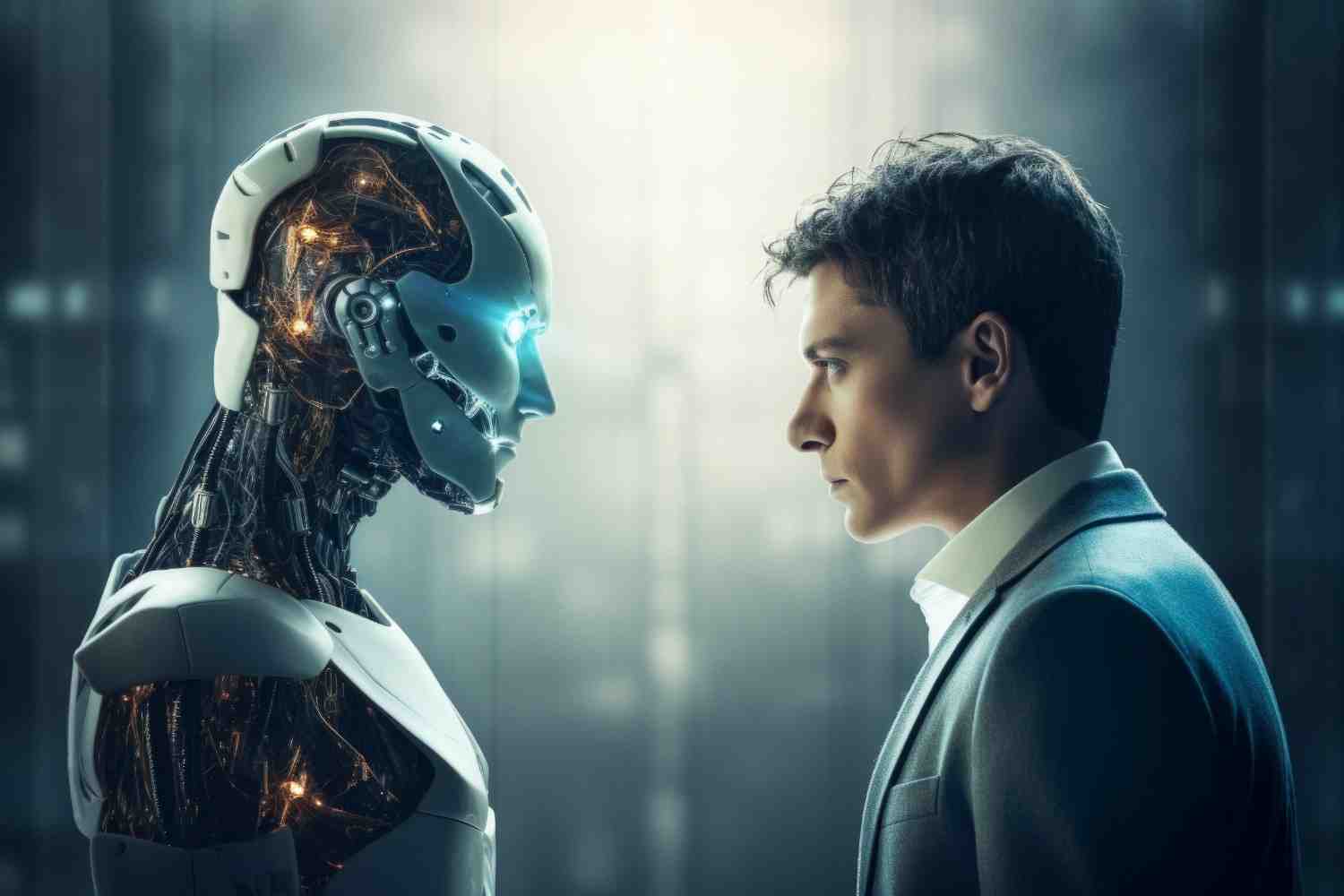Artificial Intelligence vs Human Intelligence in 2025: Epic Showdown or Power Couple?
Alright, here’s the deal—AI vs human brains in 2025? Hotter than TikTok drama, honestly. You’ve got GPT-6 ranting in every language known to Google Translate, Sora smashing it with movie-quality videos, and those so-called “autonomous agents” pretending they don’t need us anymore. It’s like, are we on the edge of Skynet or finally building the ultimate team-up? Nobody can shut up about it, and for good reason.
What Even Counts as Intelligence in 2025?
Back in the day, “intelligence” just meant you could do your math homework and not piss off your friends. Now? It’s a jungle. Robots are out here doing calculus, pretending to cry, and beating us at chess—again. But try asking a chatbot if pineapple belongs on pizza or if a smile’s actually genuine, and watch it short-circuit.
- Brainpower: Humans still have gut feelings, weird intuitions, and, let’s be real, a questionable moral compass.
- Machine smarts: Zero emotional drama, just raw stats, patterns, and speed you can’t even comprehend.
- Fake feelings: AI says “I’m sorry you feel that way” but has never actually felt squat.
So, forget “AI vs humans.” It’s more like an insane color gradient now. Creativity, intuition, empathy? We still own those. Crunching ten billion spreadsheets in five seconds? Yeah, that’s AI’s turf.
2025 AI: Pretty Wild, But Not Taking Over… Yet
What’s up on the robot side? Well, GPT-6 chats more fluently than most of your relatives, and Sora can spit out trippy, “real” videos from a text prompt (people are already making memes, obviously). In jobs with spreadsheets or coding? AI’s basically the new intern, but way less likely to expense $8 lattes.
But let’s be honest, AI still flops pretty hard with:
- Sarcasm (sigh)
- Making legit ethical calls
- Laughing at dad jokes or TikTok humor
- Having any real self-awareness
Dreaming about “general AI” that writes love songs, fixes your relationship, and also mows your lawn? Keep waiting, chief.
Human Intelligence—Not Dead Yet
Weird thing: humans are still useful. Who knew? We pick up stuff by failing (hard), patch things up with a hug, and get a vibe for tension in a room—good luck coding that. Life isn’t just algorithms, it’s messy, unpredictable, and sometimes beautiful, emphasis on messy.
I mean, can an AI get a gut feeling about a shady crypto deal or actually enjoy a sunset? Not this decade.

Quick 2025 Scorecard: Robots vs Humans
| Criteria | Artificial Intelligence | Human Intelligence |
|---|---|---|
| Speed | 🤖 Zooms through data | 🧑💻 Still waiting for coffee to kick in |
| Creativity | 🤷♂️ Getting there, I guess | 🎨 Outta left field, baby |
| Emotional Understanding | 💀 Cold as ice | 🫠 Feels all the feels |
| Real-World Interaction | 🤖 Can pick up a cup, sort of | 🕺 Surfs, cooks, hugs |
| Learning Style | 📊 All about the data | 🧠 Experiences, mistakes, regrets |
Warning: Don’t Let AI Run Wild (Seriously)
Here’s the part where things can go sideways. Biased training data? Still a thing. AI doesn’t care about fairness unless we build it in (spoiler: we don’t always). And if everyone just lets bots call all the shots, humans might turn into decision-making zombies. And who’s talking about mental health? Oh right, barely anyone.
Where They Throw Down (Or Team Up)
Creative stuff? AI barfs out tunes and pictures, but the soul? Still us, for now. Healthcare? Sassy robot can spot tumors, but it won’t hold your hand. In schools? AI customizes lessons, but you want life advice from a circuit board? Nah.
Law? Automation’s great for paperwork, but for reading the room? Get a real (human) lawyer. Finance? Bots predict stocks, but would you trust your retirement to something that’s never felt broke?
The Actual Secret Sauce: Humans + AI = 🚀
Honestly, if you’re not thinking partnership, you’re missing the point. The best stuff is happening when humans and AI tag-team. Customer support with AI wingmen. Research with robots digging up wild new stuff, and people steering the ship.
The future? It’s messy. We’re inventing jobs like “prompt engineering” and “AI therapist.” Schools are teaching kids not to fear, but to boss around their robot sidekicks. Therapy’s even getting a boost—from bots, but with a human on call, obviously.
Okay, But Can AI Actually “Think”?
Let’s not get carried away. Right now, AI can “act” like it’s thinking, sure. But true consciousness, dreams, that “am I real?” crisis at 2 a.m.—computers aren’t there yet. Tech bros and philosophers keep arguing, but until an AI writes a heartbreak song that actually slaps? Still humans, baby.
So, are robots coming for us? Kinda. Are we doomed? Nah. More like awkward roommates figuring out how not to burn down the house. Ride the chaos, and maybe teach your next robot to make you a coffee already.
Evolution of Intelligence: Biological vs Synthetic
So, look, it took humans freaking ages to get smart. Millions of years, actually. Meanwhile, AI? Boom, a bunch of nerds whip that up in less than a century. Wild, right? Now imagine teaming up—brains + bots.
Neuro-symbolic AI? Basically, if Spock learned how to dream. You get logical thinking and neural squiggles working together.
Brain-AI interfaces? Already getting weird—imagine texting your thoughts straight into Twitter. Real-time brain tweets. Slightly terrifying, mostly awesome.
🛠️ Coexistence: Massive Headaches & Moral Messes
Ethical AI? If only it was as easy as slapping on an “I’m a good bot” sticker. People want transparency, fairness, answers that don’t sound like a lawyer on Xanax.
Who gets to call the shots? Politicians? Maybe. Developers? Sometimes. Grandma? She’ll try anyway.
Let’s be honest: AIs hallucinate (that’s tech-speak for making stuff up), but people, well, we’re masters at lying, too. Who’s more dangerous? Depends if you’re talking about Facebook posts or killer robots.
🚀 The Wild Future: Less Terminator, More Buddy Comedy
Forget the human vs AI reality show. Team-ups are where it’s at. With shared decision-making, you get less Skynet, more “Hey, help me not screw this up” vibes.
Could AI make people even smarter? Maybe. Or maybe it’ll just remind us to drink water and stop doomscrolling. Either way, mixing human gut instincts with machine precision? That’s where the magic happens.
🧭 Quick Wrap: Not a Winner-Takes-All Thing
This isn’t a wrestling match. “Who’s smarter?” isn’t the point. Both together? That’s the unlock.
By 2025, if we’re still putting bots and people in opposite corners, we missed the point. By 2030? The dream is, we pair up—machines crunch numbers, humans ask the big “Why’s,” and together, we don’t destroy everything. Solid plan.
Let’s take the good in AI, dodge the creepy stuff, and keep our weird, beautiful humanity intact.
📌 2030: Pick Your Flavor of the Future
- AI World Order — Bots run the show, humans just supervise with coffee and side-eye.
- Human Glow-Up — AI’s just a fancy tool, while humans get back to painting, singing, and arguing philosophy in coffee shops.
- Total Mash-Up — Humans and AI are basically inseparable. You, me, and my digital twin grabbing ramen together.
Wanna dive further into AI or figure out which programming language won’t make you cry? Check out our guide—that stuff’s way less scary than it sounds.
